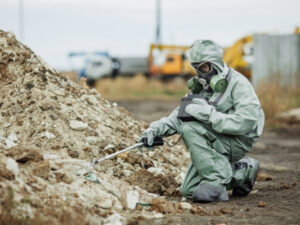Twenty years ago, when Fred Hutch, the University of Washington and Seattle Children’s created a united cancer program in Seattle, they relied on an entity called Seattle Cancer Care Alliance to deliver the consortium’s clinical services.
On a June day in 2002, Roy Jensen, a pathologist at Vanderbilt-Ingram Cancer Center, was back home in the Kansas City environs, taking his young sons to basketball camp in Lawrence.
Daniel Hayes is racing to record the stories of oncology’s greats.
In collaboration with Donald Pinkel’s daughter, Mary Pinkel, the Cancer History Project is preserving and republishing materials from his personal archive.
The story of modern cancer therapy would not be complete without the inclusion of the work of Paul Calabresi and some insights about the challenges he faced, along with his accomplishments.
“A document in perspective” is a new feature of the Cancer History Project.The objective is to take a noteworthy document—be it prescient or naive—and illuminate it by placing it in proper historical and scientific context.
In the early morning of April 30, 35 years ago, I was awakened by a call from Anatoly Dobrynin, a long-time Soviet Ambassador to the United States. He said General Secretary Mikhail Gorbachev wanted me to come to the Soviet Union to help treat victims of the Chernobyl nuclear power facility accident. I had cabled Gorbachev a few days earlier, offering my assistance.
In 1995, a group of doctors who advocated treating breast cancer with high dose chemotherapy with bone marrow transplantation made an attempt to include that highly toxic procedure in the guidelines of the nascent National Comprehensive Cancer Network.
Late in 1997, when Bruce Ross told me that Bill McGivney would replace him as CEO of the National Comprehensive Cancer Network, I thought the recruitment made sense.
The National Comprehensive Cancer Network, an organization that promulgates guidelines based on standards of care provided at academic institutions in the U.S., is indisputably one of the pillars of oncology today.















